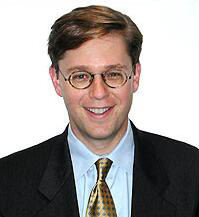External links
| International | |
|---|---|
| National | |
| Other | |
| | This article relating to law in the United States or its constituent jurisdictions is a stub. You can help Wikipedia by expanding it. |
The Federal Communications Bar Association (FCBA) is the voluntary bar association for attorneys, engineers, consultants, economists, government officials, and law students involved in the study, development, interpretation, and practice of communications and information technology law and policy in the United States. Located in Washington, D.C., the FCBA focuses primarily on the regulatory agencies of the Federal Communications Commission and the state public utility commissions.
Founded in 1936, the FCBA reports a membership of over 2,000 communications lawyers and other interested parties who meet regularly to discuss and debate communications law and policy and other topics of interest to the communications industry. The FCBA includes ten active regional chapters and several standing and ad hoc committees. In addition to providing regular continuing legal educational events and publishing a monthly newsletter, a number of meetings, seminars and social events are organized throughout the year.
Also each year, the FCBA Foundation, awards a number of stipends to law students employed as unpaid summer interns at the FCC.

The Federal Communications Commission (FCC) is an independent agency of the United States government that regulates communications by radio, television, wire, satellite, and cable across the United States. The FCC maintains jurisdiction over the areas of broadband access, fair competition, radio frequency use, media responsibility, public safety, and homeland security.

The Communications Act of 1934 is a United States federal law signed by President Franklin D. Roosevelt on June 19, 1934, and codified as Chapter 5 of Title 47 of the United States Code, 47 U.S.C. § 151 et seq. The act replaced the Federal Radio Commission with the Federal Communications Commission (FCC). It also transferred regulation of interstate telephone services from the Interstate Commerce Commission to the FCC.

Admission to the bar in the United States is the granting of permission by a particular court system to a lawyer to practice law in the jurisdiction. Each U.S. state and jurisdiction has its own court system and sets its own rules and standards for bar admission. In most cases, a person is admitted or called to the bar of the highest court in the jurisdiction and is thereby authorized to practice law in the jurisdiction. Federal courts, although often overlapping in admission standards with states, set their own requirements.

The telecommunications policy of the United States is a framework of law directed by government and the regulatory commissions, most notably the Federal Communications Commission (FCC). Two landmark acts prevail today, the Communications Act of 1934 and the Telecommunications Act of 1996. The latter was intended to revise the first act and specifically to foster competition in the telecommunications industry.

Stanford Law School (SLS) is the law school of Stanford University, a private research university near Palo Alto, California. Established in 1893, Stanford Law had an acceptance rate of 6.28% in 2021, the second-lowest of any law school in the country. George Triantis currently serves as Dean.

The American Bar Association (ABA) is a voluntary bar association of lawyers and law students; it is not specific to any jurisdiction in the United States. Founded in 1878, the ABA's stated activities are the setting of academic standards for law schools, and the formulation of model ethical codes related to the legal profession. As of fiscal year 2017, the ABA had 194,000 dues-paying members, constituting approximately 14.4% of American attorneys. In 1979, half of all lawyers in the U.S. were members of the ABA. In 2016, less than one third of the 1.3 million lawyers in the U.S. were included in the ABA membership of 400,000, with figures largely unchanged in 2024.

The Georgetown University Law Center is the law school of Georgetown University, a private research university in Washington, D.C., United States. It was established in 1870 and is the largest law school in the United States by enrollment, with over 2,000 students. It frequently receives the most full-time applications of any law school in the United States. Georgetown is considered part of the T14, an unofficial designation in the legal community of the best 14 law schools in the United States.

Brooklyn Law School (BLS) is a private law school in New York City. Founded in 1901, it has approximately 1,100 students. Brooklyn Law School's faculty includes 60 full-time faculty, 15 emeriti faculty, and adjunct faculty.
The Canadian Bar Association (CBA), or Association du barreau canadien (ABC) in French, represents over 37,000 lawyers, judges, notaries, law teachers and law students from across Canada.

Kevin Jeffrey Martin is a lobbyist for Facebook and former member and Chairman of the U.S. Federal Communications Commission (FCC), an independent agency of the United States government. He was nominated to be a commissioner by President George W. Bush on April 30, 2001, and was confirmed on May 25, 2001. On March 16, 2005, President Bush designated him as FCC chairman, to replace Michael K. Powell. President Bush renominated Martin to a new five-year term on the Commission on April 25, 2006, and he was reconfirmed by the U.S. Senate on November 17, 2006. In January 2009, Martin announced that he would step down from the FCC and join the Aspen Institute, as a senior fellow in the think tank's Communications and Society Program. He since became a partner with the law firm Squire Patton Boggs LLP, and was hired as Facebook's head of U.S. Public Policy.
FCBA can refer to
The Catholic University of America Columbus School of Law is the law school of the Catholic University of America, a private Roman Catholic research university in Washington, D.C., United States.
Headquartered in Washington, DC, the Federal Circuit Bar Association (FCBA) is an organization for the bar of the Court of Appeals for the Federal Circuit. It functions as a forum for dialogue between bar members and the court and between government counsel and private practitioners.
Richard E. Wiley is an American attorney and former government official. He served as chairman of the Federal Communications Commission (FCC) from March 8, 1974, to October 12, 1977. A member of the Republican Party, he supported increased competition and lower regulations in the communications sector.
Purdue Global Law School, is an online law school based in Los Angeles, California. It is one of several schools within Purdue University Global. Established in 1998, Purdue Global Law was the United States' first fully online law school. The school is approved by the State Bar of California and not accredited by the American Bar Association, which does not accredit fully online law schools, providing some limitations in taking the bar exam in most states other than California, Indiana, Connecticut, North Carolina, or Wisconsin.

Children At Risk is a 501(c)(3) non-profit organization that drives changes for children through research, education, and influencing public policy. Founded in the year of 1989 in Houston, Texas and with an office opened in North Texas in 2011, the organization focuses on the well-being of children and educates legislators on the importance of solving children's issues while at the same time focusing on a variety of issues, and the primary issues are human trafficking, food insecurity, education, and parenting. Children At Risk also has a North Texas office in Dallas, Texas. Some of Children At Risk's previous primary issues were juvenile justice, mental health, and Latino children.

The S.J. Quinney College of Law is a professional graduate law school under the University of Utah. Located in Salt Lake City, Utah, the school was established in 1913. It is a member of the Association of American Law Schools and is accredited by the American Bar Association.

The Mississippi Department of Transportation (MDOT) is the organization in charge of developing and maintaining all state and federal roadways in the U.S. state of Mississippi. In addition to highways, the department also has a limited role in supporting Mississippi's public transportation system, ports and waterways system, aeronautics and railroads. MDOT is headquartered in downtown Jackson.

Catherine Janet Kissee Sandoval is a former commissioner of the California Public Utilities Commission. Sandoval is a professor at Santa Clara University School of Law. As of February 2023, she has served as a member of the U.S. Chemical Safety and Hazard Investigation Board. In 1984, she was the first Latina Rhodes scholar.
Communications law refers to the regulation of electronic communications by wire or radio. It encompasses regulations governing broadcasting, telephone and telecommunications service, cable television, satellite communications, wireless telecommunications, and the Internet.